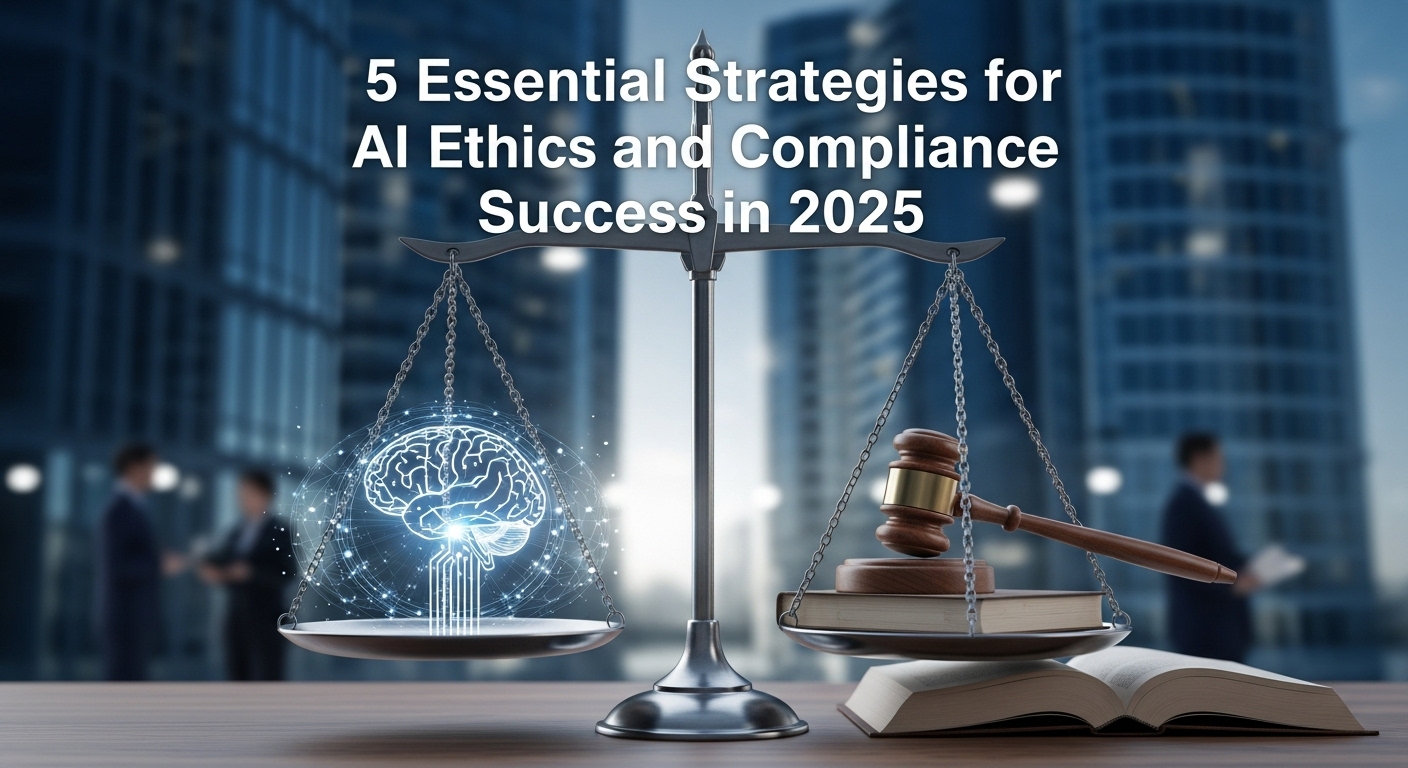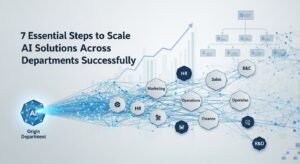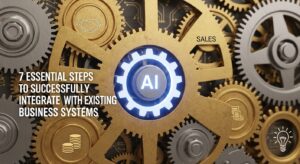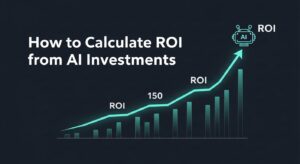AI ethics and compliance have become critical business imperatives as artificial intelligence transforms industries worldwide. Organizations deploying AI systems without proper ethical frameworks and compliance measures face unprecedented risks—from regulatory penalties to reputational damage and operational failures.
What specific AI ethics challenges is your organization currently facing? Understanding these pain points is crucial for developing an effective compliance strategy.
The rapid advancement of AI technologies has outpaced traditional regulatory frameworks, creating a complex landscape where businesses must navigate evolving standards while maintaining competitive advantages. This comprehensive guide explores proven strategies for implementing robust AI ethics and compliance programs that protect your organization while enabling innovation.
Understanding the AI Ethics and Compliance Landscape
Current Regulatory Environment
The regulatory landscape for AI ethics and compliance continues evolving rapidly across different jurisdictions:
- United States: The Biden Administration’s AI Executive Order establishes comprehensive standards for AI safety and security, requiring federal agencies to develop AI governance frameworks.
- European Union: The EU AI Act represents the world’s first comprehensive AI regulation, categorizing AI systems by risk levels and establishing strict compliance requirements.
- Global Initiatives: Organizations like the Partnership on AI and IEEE Standards Association continue developing international standards for responsible AI development.
Have you assessed which regulations apply to your specific AI use cases? This assessment forms the foundation of any effective compliance program.
Essential Components of AI Ethics and Compliance
1. Governance Framework Development
Building a robust AI ethics and compliance program starts with establishing clear governance structures:
Component | Description | Implementation Timeline |
AI Ethics Committee | Cross-functional team overseeing AI decisions | 2-4 weeks |
Policy Framework | Written guidelines for AI development and deployment | 4-8 weeks |
Risk Assessment Process | Systematic evaluation of AI system risks | 6-12 weeks |
Monitoring Systems | Ongoing oversight and performance tracking | 8-16 weeks |
What governance structures does your organization currently have in place? Identifying existing frameworks helps determine where AI-specific policies can integrate seamlessly.
2. Risk Management and Assessment
Effective AI ethics and compliance requires comprehensive risk management approaches:
Technical Risks:
- Algorithmic bias and fairness concerns
- Data privacy and security vulnerabilities
- Model accuracy and reliability issues
- Adversarial attacks and system manipulation
Operational Risks:
- Inadequate human oversight mechanisms
- Insufficient transparency in decision-making
- Poor change management processes
- Lack of explainability in AI outputs
Regulatory Risks:
- Non-compliance with data protection laws
- Failure to meet industry-specific requirements
- Inadequate documentation and audit trails
- Insufficient stakeholder communication
Which of these risk categories poses the greatest challenge for your AI initiatives? Prioritizing risks enables more focused compliance efforts.
3. Implementation Strategies for AI Ethics and Compliance
Strategy 1: Establish Clear Ethical Principles
Successful organizations anchor their AI ethics and compliance programs in well-defined principles:
- Fairness and Non-Discrimination: Ensuring AI systems treat all individuals equitably regardless of protected characteristics. This requires regular bias testing and diverse development teams.
- Transparency and Explainability: Making AI decision-making processes understandable to stakeholders. Consider: can your users understand how your AI system reaches its conclusions?
- Privacy and Data Protection: Implementing robust data governance practices that comply with regulations like GDPR and CCPA while enabling AI innovation.
- Human Oversight and Control: Maintaining meaningful human involvement in AI-driven decisions, especially in high-stakes applications.
Strategy 2: Develop Comprehensive Documentation
AI ethics and compliance demands thorough documentation throughout the AI lifecycle:
- Model Development Records: Training data sources, algorithm selections, and performance metrics
- Risk Assessment Reports: Identified risks, mitigation strategies, and monitoring plans
- Compliance Checklists: Regulatory requirements and verification procedures
- Incident Response Plans: Procedures for handling AI system failures or ethical violations
How complete is your current AI documentation? Gaps in documentation often become critical vulnerabilities during audits or investigations.
Strategy 3: Implement Continuous Monitoring
AI systems require ongoing oversight to maintain ethical standards and compliance:
- Performance Monitoring: Regular assessment of AI system accuracy, fairness, and reliability across different user groups and use cases.
- Bias Detection: Systematic testing for discriminatory outcomes that may emerge over time as data patterns change.
- Regulatory Updates: Staying current with evolving compliance requirements and industry best practices.
- Stakeholder Feedback: Collecting input from users, affected communities, and regulatory bodies to identify potential issues.
Strategy 4: Foster Organizational Culture
Building sustainable AI ethics and compliance requires cultural transformation:
- Training and Education: Comprehensive programs ensuring all team members understand ethical AI principles and compliance requirements.
- Incentive Alignment: Reward systems that prioritize ethical considerations alongside business metrics.
- Cross-Functional Collaboration: Breaking down silos between technical teams, legal departments, and business units.
- External Engagement: Active participation in industry forums and regulatory discussions to stay ahead of emerging requirements.
What cultural barriers might prevent effective AI ethics implementation in your organization? Identifying these obstacles early enables more targeted change management strategies.
Strategy 5: Leverage Technology Solutions
Modern AI ethics and compliance benefit from specialized tools and platforms:
- Automated Bias Detection: Tools like IBM Watson OpenScale and Microsoft Fairlearn help identify and mitigate algorithmic bias.
- Explainability Platforms: Solutions providing interpretable AI outputs for regulatory compliance and user trust.
- Data Governance Systems: Comprehensive platforms managing data lineage, quality, and privacy compliance throughout AI development.
- Audit and Compliance Tools: Specialized software for maintaining compliance documentation and facilitating regulatory audits.
Industry-Specific Considerations
Healthcare AI Ethics and Compliance
Healthcare organizations face unique challenges in AI ethics and compliance:
- HIPAA Compliance: Ensuring AI systems protect patient privacy and maintain data security
- FDA Regulations: Meeting requirements for AI-enabled medical devices and diagnostic tools
- Clinical Decision Support: Maintaining appropriate human oversight in treatment recommendations
Financial Services
Financial institutions must address specific regulatory requirements:
- Fair Credit Reporting Act: Ensuring AI-driven credit decisions comply with anti-discrimination laws
- Model Risk Management: Following regulatory guidance on AI model validation and governance
- Consumer Protection: Maintaining transparency in AI-driven financial products and services
Technology and Software
Tech companies developing AI products face broad compliance challenges:
- Global Privacy Laws: Navigating different data protection requirements across jurisdictions
- Algorithmic Accountability: Addressing growing demands for AI system transparency
- Platform Responsibility: Managing AI-generated content and recommendation system impacts
Common Implementation Challenges
Resource Allocation
Many organizations struggle with the significant investment required for comprehensive AI ethics and compliance programs. Consider these approaches:
- Phased Implementation: Starting with high-risk AI applications and gradually expanding coverage
- Shared Resources: Leveraging industry consortiums and shared compliance frameworks
- Technology Automation: Using tools to reduce manual compliance overhead
Technical Complexity
AI ethics and compliance often requires sophisticated technical capabilities:
- Bias Detection: Developing methods to identify subtle forms of algorithmic discrimination
- Explainability: Creating interpretable AI systems without sacrificing performance
- Monitoring Systems: Building infrastructure for continuous oversight and assessment
Organizational Resistance
Cultural challenges frequently impede AI ethics and compliance initiatives:
- Speed vs. Safety Tensions: Balancing rapid innovation with thorough ethical review
- Cross-Functional Coordination: Aligning technical teams with legal and compliance departments
- Change Management: Adapting existing processes to incorporate ethical considerations
What obstacles has your organization encountered in previous compliance initiatives? Learning from past challenges helps design more effective AI ethics programs.
Measuring Success in AI Ethics and Compliance
Key Performance Indicators
Effective measurement requires both quantitative and qualitative metrics:
Quantitative Metrics:
- Bias detection rates across protected characteristics
- Compliance audit scores and regulatory assessment results
- Incident response times and resolution rates
- Training completion rates for AI ethics programs
Qualitative Metrics:
- Stakeholder satisfaction with AI system transparency
- Cultural assessment of ethical awareness and commitment
- External recognition for responsible AI practices
- Regulatory relationship quality and communication effectiveness
Continuous Improvement
AI ethics and compliance programs require ongoing refinement:
- Regular Reviews: Quarterly assessments of program effectiveness and regulatory alignment
- Stakeholder Feedback: Systematic collection of input from users, regulators, and affected communities
- Industry Benchmarking: Comparing practices with industry leaders and best-in-class organizations
- Technology Updates: Adapting to new tools and methodologies for ethical AI development
Future Trends in AI Ethics and Compliance
Emerging Regulatory Developments
The regulatory landscape continues evolving with new requirements and standards:
- Global Harmonization: Increasing coordination between international regulatory bodies
- Industry-Specific Rules: Sector-specific guidance for healthcare, finance, and other domains
- Technical Standards: Development of measurable criteria for AI fairness and explainability
Technology Advancements
New technologies are reshaping AI ethics and compliance approaches:
- Automated Compliance: Tools that integrate ethical considerations into AI development workflows
- Real-Time Monitoring: Systems providing continuous oversight of AI system behavior
- Privacy-Preserving AI: Techniques like federated learning and differential privacy
Business Model Evolution
Organizations are discovering competitive advantages in strong AI ethics and compliance programs:
- Trust-Based Differentiation: Using ethical AI practices as market differentiators
- Risk Mitigation: Avoiding costly incidents through proactive compliance measures
- Innovation Enablement: Building sustainable foundations for long-term AI advancement
Conclusion: Building Sustainable AI Ethics and Compliance
Implementing effective AI ethics and compliance requires sustained commitment, cross-functional collaboration, and continuous adaptation to evolving requirements. Organizations that invest in comprehensive programs today position themselves for long-term success in an increasingly regulated AI landscape.
The strategies outlined in this guide provide a roadmap for developing robust AI ethics and compliance capabilities. However, each organization’s specific context, risk profile, and regulatory environment requires tailored approaches.
What steps will you take first to strengthen your AI ethics and compliance program? Starting with a clear assessment of current capabilities and regulatory requirements enables more focused and effective implementation efforts.
Success in AI ethics and compliance isn’t just about avoiding regulatory penalties—it’s about building trust, enabling innovation, and creating sustainable competitive advantages through responsible AI development. Organizations that embrace these principles today will lead the responsible AI revolution of tomorrow.











